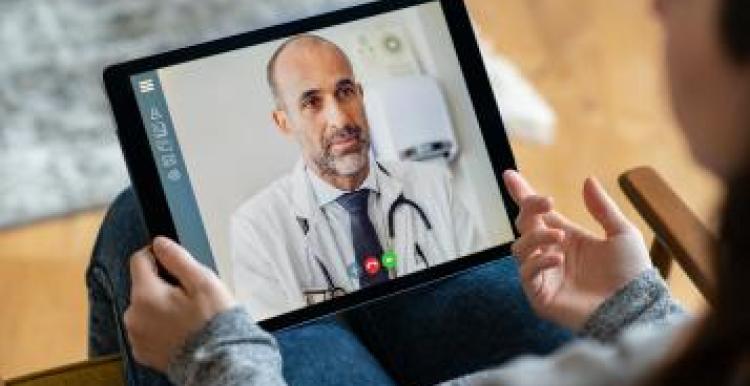What choices do you have at your GP practice?

You are entitled to certain choices when booking GP appointments. These have different levels of status. Some relate to rights patients are entitled to under legislation, while others are not legal rights but are recommended under guidelines or policy. Perhaps most prominently, the NHS Constitution includes the right to ask for a particular doctor.
The National Institute for Health and Care Excellence (NICE) clinical guideline on patient experience in adult NHS services, which applies to GP and other NHS consultations, says that services should "adopt an individualised approach to healthcare services.”
This means services should consider “people’s ability to access services, personal preferences and coexisting conditions". Whilst NICE guidelines are not legal rights, in practice, they are seen as advice that medical professionals should follow.
The NHS GP contract also includes choices that you should be offered.
Your current choices
Healthwatch England have listed the choices you currently have when you use GP services.
1. Method of booking a GP appointment
You can choose how you want to book your appointment with a GP, be it over the phone, online (including via the NHS App) or face-to-face. This right is in the GP contract.
2. Named healthcare professional
According to the NHS constitution, from the NHS Act 2006, "You have the right to express a preference for using a particular doctor preference within your GP practice, and for the practice to try to comply."
This means that however you book your appointment, you can ask for a specific doctor. This request may not always be granted, but the constitution says the practice should "try to comply".
3. Male or female professional
As the NHS Constitution includes the right to ask for a named professional, you can ask for a male or female professional. This type of request is likely to be granted, although there may be a delay.
Practices' ability to meet this request will depend on their workforce make-up and also whether the surgery believes your symptoms are so urgent you should see any available doctor.
4. Type of professional
Under the NHS constitution, you can ask for a GP instead of another professional.
5. Longer appointment
Under the Equality Act, you have the right to ask for a longer appointment if it's a reasonable adjustment required to meet the needs of a disabled person.
However, it's up to GP surgeries to decide how to implement reasonable adjustments. You may only be able to get it on the telephone or in person.
6. Companion at appointments
You can bring a family member, friend or advocate along to a GP appointment. This best practice recommendation is in the NICE Patient Experience guideline. You shouldn’t need to ask for permission to do this.
Under many local guidelines, people can also request another NHS member comes into an appointment as a chaperone, such as asking a female member of staff come in if a male GP undertakes an intimate examination of a female patient.
7. Accessibility adjustment
Under the Accessible Information Standard and the Equality Act, you can ask for communication support, such as a British Sign Language interpreter. You also have the right to receive healthcare in an accessible format, such as electronic, Braille, easy read, large print, and others.
A new NHS system called the Reasonable Adjustment Digital Flag allows health professionals to record your needs once and for them to be shared across the NHS. This should mean that if you tell a member of practice staff what your requirements are, this should be recorded and used for future appointments.
Healthwatch England’s findings on GP appointments and patient choice
People want more choice when booking GP appointments
Organising appointments to work around their lives matters to people, with time of appointment, choice of booking method, appointment type (face-to-face versus remote), and health professional being the most desired choices.
People do not always get the choices they have a right to
The GP contract says that patients have the right to choose the method by which they directly book appointments. Yet under a third (30%) of people are always given a choice of booking method for appointments, and around one in six (16%) are never given this option.
Patients face a "choice gap"
Gaps were found between how often people wanted choices and how often those choices were offered. 68% of respondents told us they want a choice about when an appointment takes place always or most of the time. But only 49% shared they always or mostly get this choice.
That "choice gap" affects some groups more than others
The "choice gap" is generally larger for older people, women, and those unable to work due to health issues or disability.
People often must ask for certain choices, rather than being offered them
Nearly half (48%) of those who got a choice of a named healthcare professional told us they had to ask for the choice, compared to 40% who got the choice without asking. The same is true for requesting a longer appointment, which 47% got by asking for it, while 37% got it without having to ask.
Healthwatch England’s recommendations
- Better monitoring of patient choice through the GP Patient Survey
- Capturing patient choices at the point of GP registration
- Embedding patient choice in all booking approaches
- Improving continuity of care for those who need it most
- Offering patients 24-hour access to GP booking platforms
Your view matters
Your voices are driving change. We’re committed to making sure the system puts your needs first. Together, we’ll close the choice gap and build a GP service that works for everyone.
Read Healthwatch England's article for more information and you can access the full report here.

